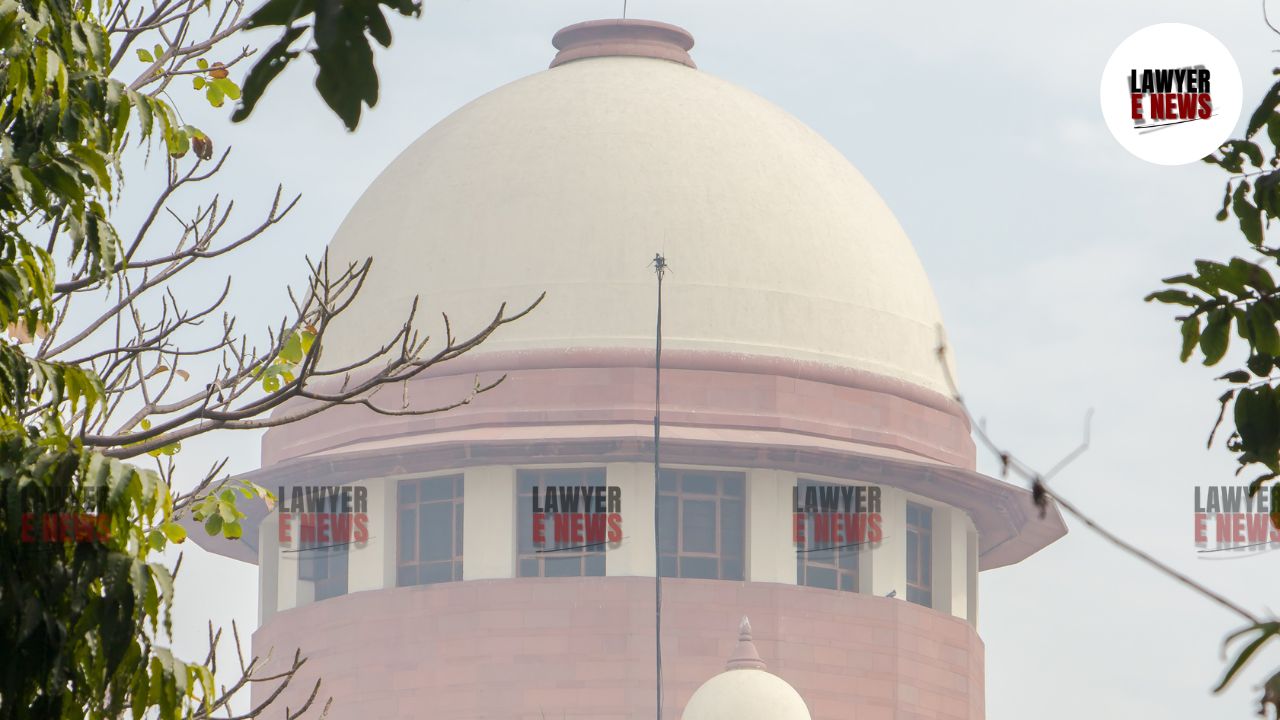-
by Admin
15 February 2026 2:36 AM



In a significant judgment Supreme Court of India allowed the appeal challenging the High Court's decision to deny specific performance of a sale agreement. The Court restored the decree passed by the Trial Court for specific performance, modifying the balance consideration amount payable to ₹20,00,000 to balance equities between the plaintiff and the defendants, a widow and her minor son.
The judgment, delivered by a bench comprising Justice J.B. Pardiwala and Justice R. Mahadevan, clarified the scope of discretion under Section 20 of the Specific Relief Act, 1963 (as it stood prior to the 2018 amendment), particularly regarding the issue of unforeseen hardship.
“Mere Rise in Property Prices is Not Hardship”: SC Observes
In its ruling, the Supreme Court reiterated that hardship under Section 20(2)(b) of the Specific Relief Act must be unforeseen at the time of entering the contract. The Court emphasized:
“Hardship must be based on circumstances existing at the time of the contract. Defendants failed to show cogent evidence that such hardship was unforeseen by the vendor at the time of executing the sale agreement.”
The case arose from a registered agreement of sale executed on May 27, 2016, between the appellant (Parswanath Saha) and Late Prabha Ranjan Das for a property in West Tripura. The agreement fixed the total consideration at ₹17,50,000, with ₹4,00,000 paid as earnest money. However, after the vendor's death in July 2016, his legal heirs (the defendants—a widow and minor son) refused to execute the sale deed, citing hardship, as the property in question was their only residence.
The Trial Court decreed specific performance in favor of the plaintiff, ordering the defendants to execute the sale deed upon receipt of the remaining ₹13,50,000. However, the High Court reversed the decree, citing hardship to the defendants, who claimed they would be rendered homeless if the property were sold.
The central issue before the Supreme Court was whether the defendants' claim of hardship fell under Section 20(2)(b) of the Specific Relief Act. The Court ruled:
“The explanation to Section 20 clarifies that hardship must be adjudged with reference to circumstances existing at the time of entering the contract. Defendants failed to establish such hardship that was unforeseen by the vendor, Late Prabha Ranjan Das.”
The Court noted that the defendants, in their written statement, claimed hardship due to potential homelessness but failed to substantiate it with cogent evidence. On the contrary, evidence suggested that the defendants were residing at the parental house of the widow, and not on the suit property, at the time of the agreement.
The Trial Court had affirmed the plaintiff's readiness and willingness to perform the contract, a finding not disturbed by the High Court. The Supreme Court reiterated:
“The plaintiff had consistently demonstrated his readiness and willingness to pay the balance consideration. The High Court erred in reversing the decree without addressing this issue.”
The Supreme Court underscored the principles governing the exercise of discretion under Section 20, noting that courts are not bound to grant specific performance merely because it is lawful to do so. However, such discretion must be exercised judiciously. The Court observed:
“The discretion is not arbitrary but sound and reasonable, guided by judicial principles.”
The High Court, it held, had misapplied this principle by placing undue emphasis on hardship without considering the contractual obligations and the vendor's intentions at the time of the agreement.
While restoring the Trial Court’s decree, the Supreme Court modified the balance consideration payable by the plaintiff from ₹13,50,000 to ₹20,00,000. The Court stated:
“Given the defendants’ circumstances as a widow and minor son, an enhanced consideration balances the equities while ensuring specific performance of the contract.”
The judgment reaffirms the principle that specific performance is an equitable remedy, and hardship under Section 20 must be proven with cogent evidence, particularly with reference to circumstances at the time of contract formation. The Court's balanced approach in enhancing the consideration demonstrates sensitivity toward the defendants' circumstances without negating the enforceability of valid contractual obligations.
Date of decision: December 20, 2024
